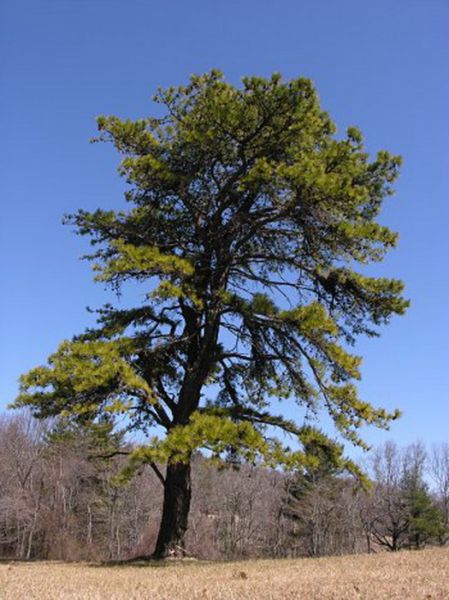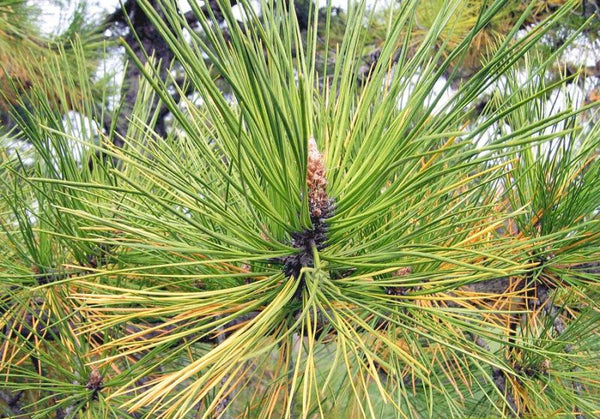Pitch Pine, Pinus rigida
Shipping calculated at checkout
34 in stock
Need more? Contact us
A very rare species of pine in Quebec, it is confined to the extreme southwest of Quebec and is threatened on the list of endangered species due to the loss of its habitat. The tree does not produce pine nuts because its seeds are too small. On the other hand, it has a picturesque appearance and adapts well to very poor (sandy) soils. Ideal to help with genetic conservation and to promote its expansion in our territory.
Tree reaching 20 m in height and 30 cm in diameter, which can live up to 200 years. Trunk often twisted, often bearing bundles of needles; bark reddish brown, smooth, becoming scaly and forming large, thick, irregular plates, dark gray and interspersed with furrows. Irregular crown; numerous, knotty, drooping branches. Branches robust, glabrous, greenish to orange or dark brown, streaked and grooved. Leaves (needles) rigid, twisted, yellowish green, gathered in bundles of 3, measuring 7 to 12 cm in length and persisting for 2 to 3 years on the branches. Ovoid cones, measuring 5 to 9 cm in length, with a very short peduncle, more or less serotinous and can persist on the tree for several years; cone scales thickened at the end and provided with a rigid and curved spine. Winged seeds.
HABITAT
Open, dry and poor rocky or sandy environments, more rarely peaty. Almost always in the company of narrow-leaved Blueberry (Vaccinium angustifolium) and narrow-leaved kalmia (Kalmia angustifolia) to which are added, in dry environments, lichens of the genus Cladina or, in peaty environments, the Canadian rhododendron (Rhododendron canadense), the calyculate chamedaphne (Chamaedaphne calyculata) and sphagnum moss.
BIOLOGY
Shade intolerant species. Flowering in May, pollination by wind. Ripening of the cones extends over two seasons and is completed towards the end of August or the beginning of September. Some cones release their seeds shortly after reaching maturity, while serotinous cones only do so following a fire or cutting down of the tree. Although they are winged, the seeds are rarely carried more than 90 m away.
CONSERVATION PROBLEM
In Quebec, only three occurrences of pitch pine are known, two of which have fewer than twenty individuals. It is estimated that there are between 3,000 and 4,000 individuals, most of which are found within the Pin-Rigide ecological reserve. This tree only meets favorable conditions for its growth in the extreme south of Quebec, where its maintenance would be linked to the cyclical passage of fires. Urban and agricultural development as well as logging have undoubtedly contributed to the rarefaction of this species in our territory.
Designated a threatened species in Quebec in 2005, the pitch pine is now protected under the Act respecting threatened or vulnerable species. The species is rare in Canada and according to data from the NatureServe network, it is threatened in Ontario. However, its situation would not be worrying in the 23 American states where it is present.



